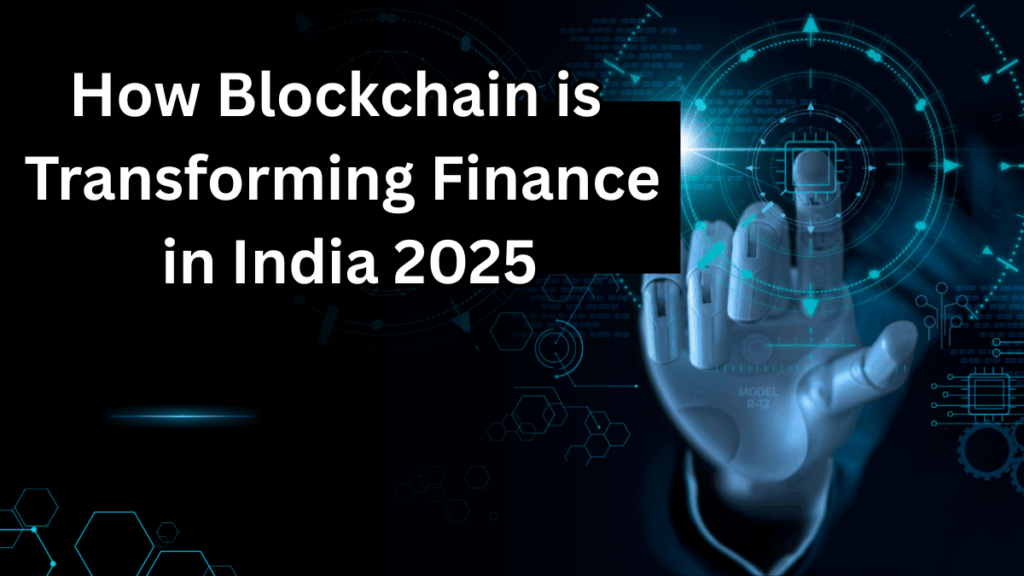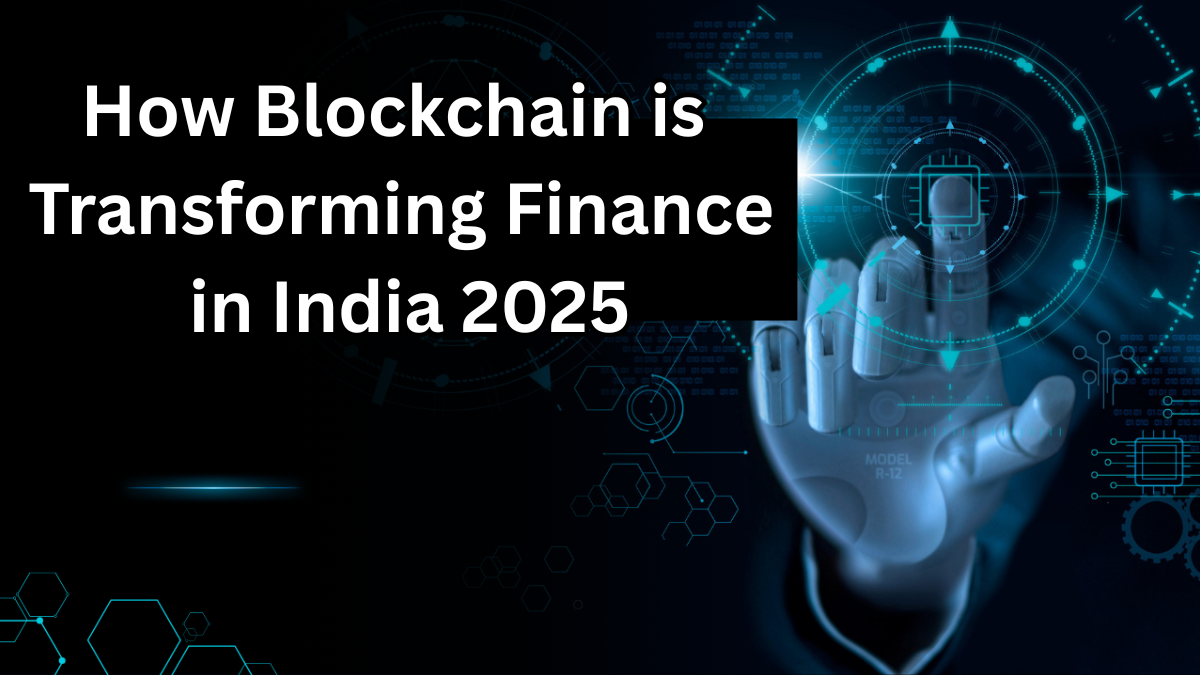In recent years, Blockchain Technology has been reshaping the financial world, and India’s fintech sector is no exception. As we step into 2025, the impact of Blockchain in Finance India 2025 is becoming more visible across banking, payments, insurance, and government initiatives. This decentralized technology is driving transparency, efficiency, and trust in the financial ecosystem—something India’s growing digital economy has long needed.

Understanding Blockchain Technology in Finance
Before diving into its transformation, it’s essential to understand what Blockchain Technology really is.
- Definition: A blockchain is a distributed ledger that records transactions securely and transparently across multiple computers.
- Core Idea: No single entity controls the data, reducing the chances of fraud or manipulation.
- Relevance to Finance: Every transaction is verified, traceable, and immutable—making it ideal for banking and financial services.
Key Areas Where Blockchain Is Revolutionizing Finance in India
Digital Payments and Settlements
The rise of Fintech India platforms has made digital payments mainstream. Blockchain adds a new layer of security and transparency.
- Real-time transactions with minimal intermediaries
- Reduced transaction costs
- Cross-border payments simplified
| Traditional Payments | Blockchain Payments |
|---|---|
| Involves multiple intermediaries | Peer-to-peer transactions |
| High transaction fees | Lower operational costs |
| Slower settlement times | Instant verification and settlement |
Banking and Loan Management
Banks are exploring blockchain-based smart contracts to automate lending, verification, and compliance.
- Transparent credit scoring systems
- Instant verification of borrower data
- Reduced human error and paperwork
Insurance and Risk Management
The insurance industry in India is leveraging Blockchain Technology to manage claims more efficiently.
- Fraud detection using immutable records
- Smart contracts for automated claim settlements
- Secure customer data sharing among institutions
Government Initiatives and Regulation
The Indian government and RBI are promoting the use of blockchain for secure and efficient financial services.
- Pilot programs for Central Bank Digital Currency (CBDC)
- Blockchain-based KYC verification systems
- Improved data governance through decentralized frameworks
Benefits of Blockchain in Finance India 2025
As Blockchain Technology becomes more integrated into Fintech India, several benefits emerge:
- Transparency: Every transaction is recorded and easily traceable.
- Security: Data cannot be tampered with once recorded.
- Cost Efficiency: Eliminates intermediaries and reduces operational expenses.
- Speed: Real-time processing without waiting for manual approvals.
- Accessibility: Helps unbanked citizens gain financial inclusion.
Challenges and the Road Ahead
While the future looks promising, the Finance Revolution through blockchain faces some challenges:
- Lack of awareness among traditional financial institutions
- Need for clear government regulations
- Data privacy and security concerns
- High implementation costs in smaller fintech startups
Yet, 2025 marks a pivotal year where collaboration between Fintech India, banks, and the government could turn these challenges into opportunities.
The Future of Blockchain in India’s Financial Landscape
Looking forward, Blockchain in Finance India 2025 is not just about adopting new technology—it’s about creating a smarter, fairer, and more accessible financial ecosystem. From digital currency pilots to decentralized finance (DeFi) models, India’s financial future will rely on transparency, innovation, and trust.
FAQs
1. How is Blockchain Technology used in the Indian financial sector?
Blockchain is being used for secure payments, automated loans, insurance claim processing, and even digital currency initiatives by the RBI.
2. What are the main benefits of Blockchain in Finance India 2025?
It ensures transparency, reduces fraud, lowers costs, and accelerates transactions across financial services.
3. Is the Indian government supporting Blockchain Technology in finance?
Yes, the government and the Reserve Bank of India are running pilot projects for digital currencies and blockchain-based KYC systems.
4. Will Blockchain replace traditional banks in India?
Not entirely. Instead, it will enhance the efficiency and trustworthiness of banks, helping them offer better digital and decentralized financial services.
Conclusion
As the Finance Revolution continues, Blockchain in Finance India 2025 stands as a key enabler of progress. By integrating Blockchain Technology with Fintech India innovations, the country is on its way to building a more inclusive, transparent, and technologically advanced financial future.
Click here to learn more
